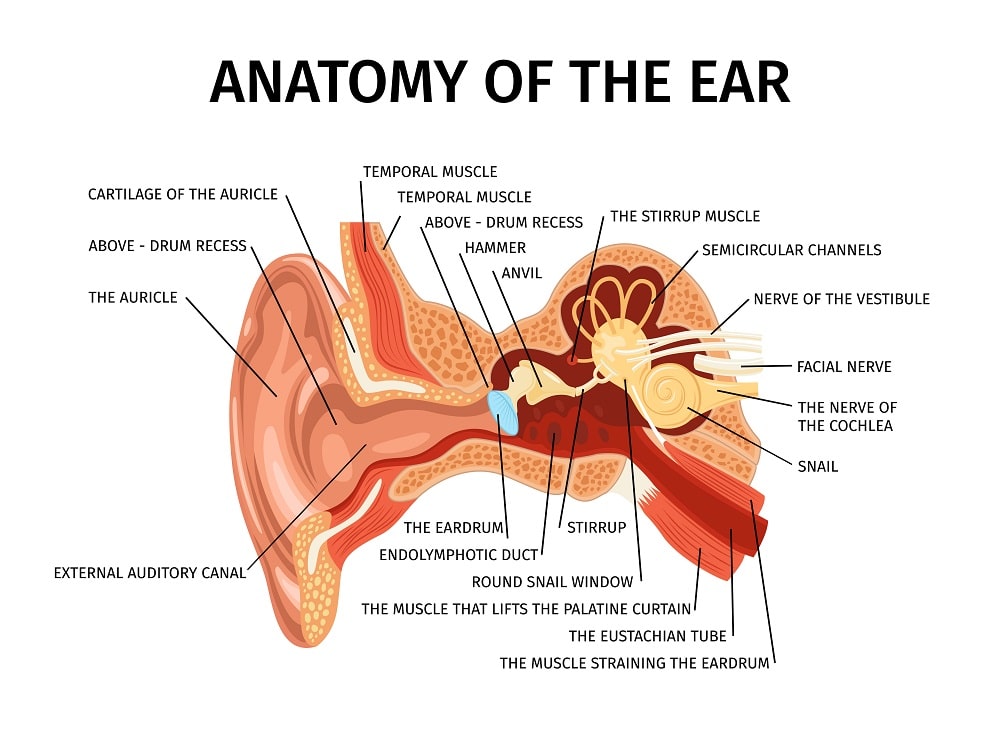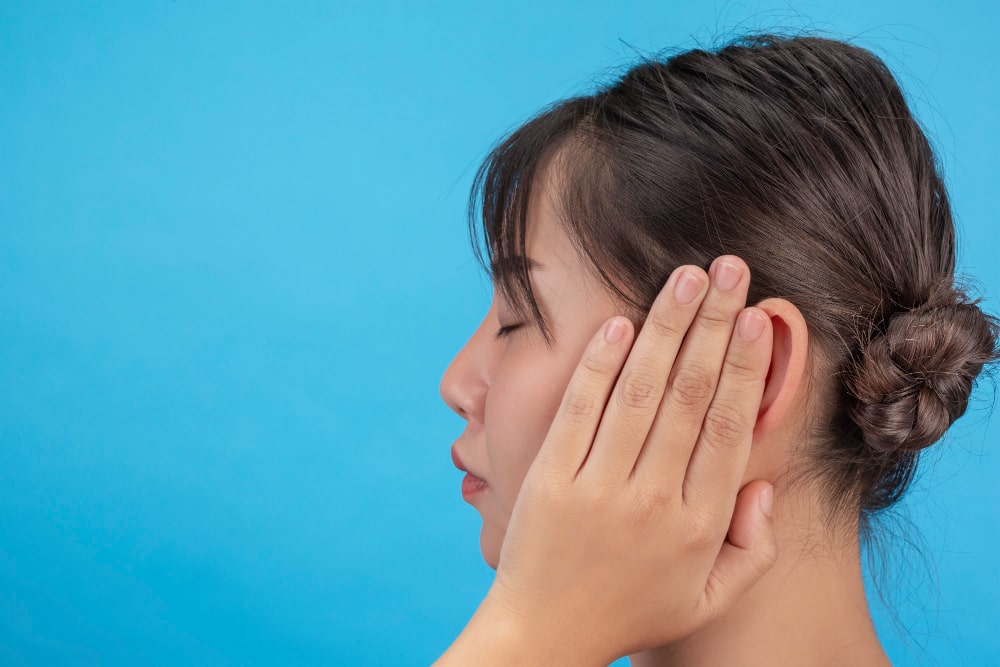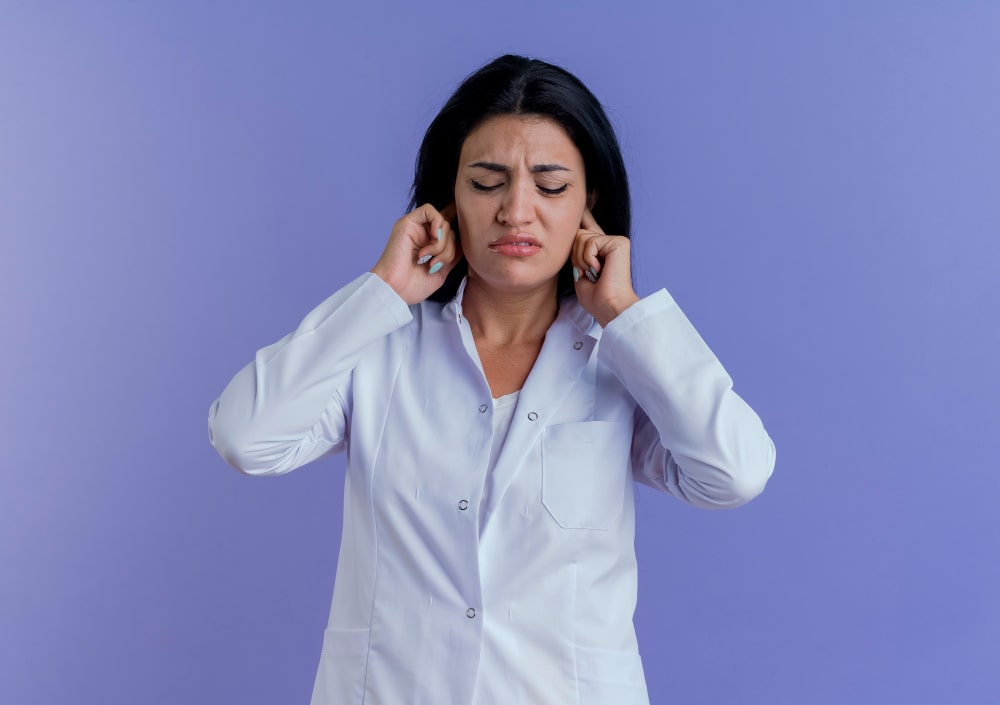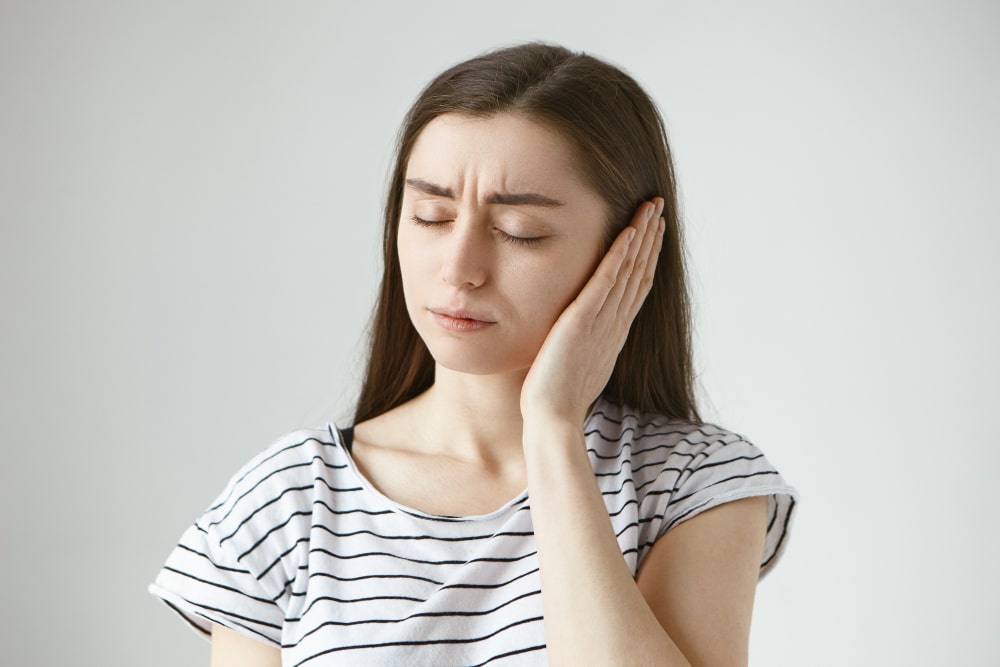Ear cartilage pain can be a confusing and worrying experience, and understanding the causes of this discomfort is an important first step in treating your condition. This article will provide information about ear cartilage injuries, common causes of pain, how to identify symptoms, effective treatment approaches, self-care strategies, and prevention methods. Knowing this information can help you better understand and manage your ear cartilage pain.
Understanding Ear Cartilage
The external part of the ear consists of several components, including the auricle (pinna), tragus, antitragus, helix, antihelix ridge, concha, and lobule. The tough but flexible tissue that makes up these parts is called cartilage. Cartilage can become damaged due to injury or disease, leading to pain and discomfort.


Read More: Sinus Infection Ear Pain: What Causes It and How to Treat?
Common Causes of Ear Cartilage Pain
There are several causes of ear cartilage pain, including infections and inflammation, trauma or injury, and medical conditions. Let’s take a closer look at each one in turn.
Infections and Inflammation
Ear cartilage pain can be caused by infections of the ear, such as a swimmer’s ear (otitis externa) or a middle ear infection (otitis media). These infections often cause inflammation in the affected area, resulting in symptoms like redness, tenderness, and swelling.
Trauma or Injury
Cartilage can become damaged from physical trauma, such as a blow to the ear or getting hit by a ball. This type of injury can cause pain and limit movement in the affected area. In some cases, it may also lead to bruising and swelling.
Medical Conditions
Certain medical conditions can also cause cartilage pain, such as ear infections, psoriasis, and dermatitis. These can lead to inflammation and tenderness in the external ear.


Read More: Sharp Pain in Ear: Causes, Symptoms, Treatments, Prevention
Identifying Symptoms
Several signs and symptoms can indicate ear cartilage pain. Some common ones include:
Tender or Sensitive Ears: The ear may feel tender when touched or moved, and there may be a sharp pain when pressure is applied.
Redness and Swelling: Inflamed cartilage can cause redness and swelling around the affected area. This can make it difficult to move the ear normally.
Sharp or Dull Pain: The pain may be felt as a sharp, stinging sensation or a dull ache. The intensity of the pain can vary depending on the underlying cause.
Limited Ear Movement: Painful and inflamed cartilage can limit the range of movement in your ear. This can make moving or tinting your head in certain directions difficult.


Diagnosis and Medical Consultation
If you are experiencing ear cartilage pain, talking with a healthcare provider is important. They can help determine the underlying cause of your symptoms and recommend treatments that best address your condition.
Your doctor may also perform a physical examination of the affected area and order tests such as imaging studies (CT or MRI) and blood tests to rule out other medical conditions.
Read More: 5 Best Essential Oils for Ear Infection: Benefits, Uses
Ear Cartilage Pain Treatment
Once the underlying cause of your ear cartilage pain has been identified, your healthcare provider can recommend treatment approaches best suited to your condition. Some of the most common methods include:
Pain Management
Your doctor may prescribe medications to help manage your pain and reduce inflammation. Over-the-counter analgesics, such as ibuprofen and acetaminophen, can also relieve pain.
Antibiotics and Medications
If the cause of your ear cartilage pain is an infection, your healthcare provider may prescribe antibiotics or other medications to help treat the infection.
Warm Compresses
Applying warm compresses to the affected area can help reduce inflammation and provide relief from pain and discomfort.
Rest and Immobilization
Resting and avoiding activities that pressure the ear cartilage can help speed healing. In some cases, your doctor may also recommend wearing a splint or bandage to immobilize the ear for several days.
Read More: Dry Skin in Ears: Causes, Symptoms, Treatment, FAQs
Self-Care and Home Remedies for ear cartilage pain
In addition to medical treatment, there are a few self-care strategies that you can use at home to help reduce pain and inflammation. These include:
Applying Ice Packs: Applying ice packs to the affected area can help reduce swelling and provide relief from pain. Make sure to wrap the ice in a cloth before applying it so it doesn’t directly touch your skin.
Over-the-Counter Pain Relievers: You can also take over-the-counter pain relievers, such as ibuprofen or acetaminophen, to help manage your pain.
Keeping the Ear Clean and Dry: It is important to keep the ear clean and dry to help prevent infections. Avoid swimming or exposing the affected area to water until it has had a chance to heal.
Eating an Anti-Inflammatory Diet: Eating a diet that is rich in anti-inflammatory foods can also be beneficial for managing ear cartilage ache. This includes eating plenty of fruits and vegetables and avoiding processed and refined foods.
Read More: Navicular Bone Pain: What Causes It, How to Relief Pain?
How to Relieve Ear Cartilage Pain: Prevention Strategies
Several strategies can help you prevent ear cartilage pain, such as:
1) Avoiding Trauma or Injury
When participating in sports, wear protective gear, such as helmets and ear guards, to reduce the risk of trauma or injury.
2) Wearing Protective Headgear
When participating in physical contact activities, such as sports and martial arts, it is important to wear protective headgear. This can help prevent injuries to the ears caused by blows or impacts.
Read More: Sudden Sharp Stabbing Pain in Eye: Causes, Symptoms, Cure
3) Practising Good Hygiene Habits
It is important to practice good hygiene habits to reduce your risk of ear infections. This includes:
- Carefully keeping your ears clean and dry.
- Avoiding swimming or submerging your head in the water.
- Using ear plugs or cotton swabs.
4) Avoiding Loud Noises
Exposure to loud noises can also damage the cartilage in your ears. It is important to wear appropriate hearing protection when working in noisy environments and to limit your exposure to loud music.
5) Managing Underlying Health Conditions
If you have any underlying health conditions, such as diabetes or psoriasis, make sure to manage them properly. This can help reduce the risk of developing ear cartilage pain.
Read More: Yeast Infection While on Period: What Causes It, How to Treat It?
Conclusion
Overall, ear cartilage pain can have many causes and can be treated with various methods. It is important to talk to your healthcare provider if you are experiencing symptoms of ear cartilage ache so that they can identify the underlying cause and recommend treatment approaches that are best suited to address your condition. Additionally, there are some strategies that you can use at home to help reduce aches and inflammation, as well as preventative measures that can be taken to reduce your risk of developing ear cartilage aches. By following these tips and speaking with your medical professional, you can effectively manage and treat any ear cartilage ache you may experience.
Frequently Asked Questions
While ear cartilage pain is often due to less severe issues like a minor injury or an infection, it can occasionally be a symptom of more serious conditions, such as autoimmune diseases. Always consult your doctor if your symptoms persist or worsen.
The duration of ear cartilage pain can vary depending on its cause. For example, pain due to a minor injury or an infection can typically subside in a few days with proper treatment. However, pain associated with chronic conditions may last longer.
It is recommended to avoid using earphones when experiencing ear cartilage pain, as they can put additional pressure on the affected area and cause further discomfort. In general, it is advisable to use headphones instead of earphones whenever possible. However, always check with your healthcare provider before using any device near your ears if you have an existing condition.
Yes, ear cartilage pain can be a sign of an infection. If you experience sudden or persistent pain in your ears, it is important to see a doctor as soon as possible so that they can properly diagnose and treat any underlying infections.
Yes, stress can contribute to ear discomfort. Stress can lead to an increase in tension and tightness in the muscles of the neck and jaw, which can cause pain and stiffness in the ears. Mindfulness activities such as meditation or yoga may help reduce this discomfort. Always speak with your healthcare provider if your symptoms persist or worsen.

